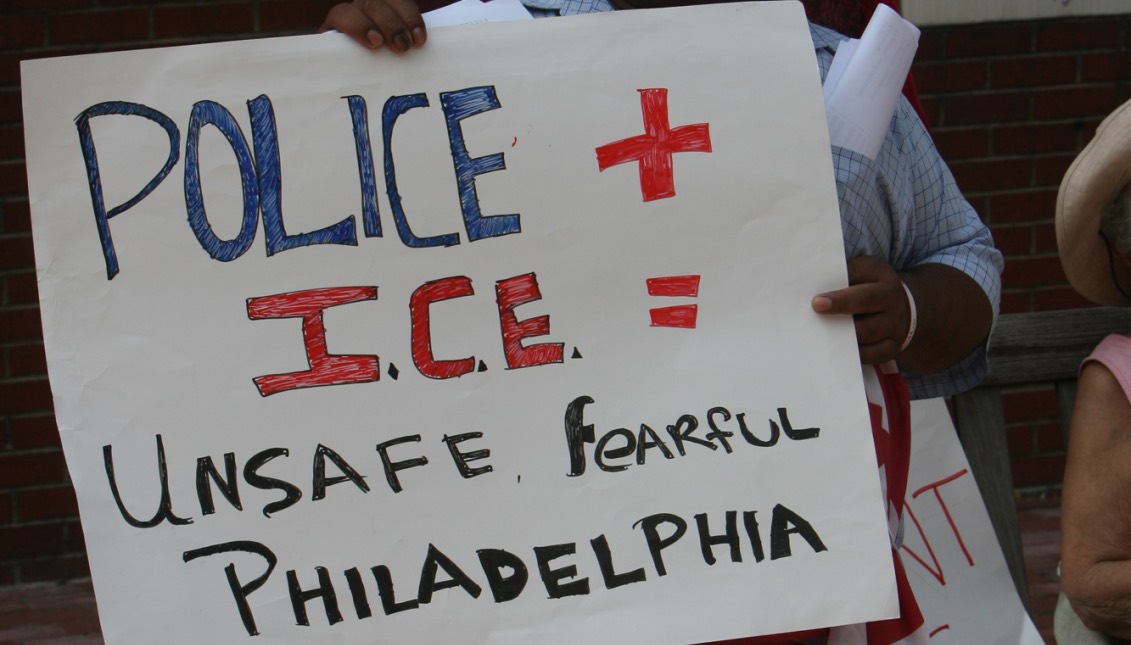
2015: For every step forward, we took two back
MORE IN THIS SECTION
2015 has been a strange year.
Early it promised to be a game-changing year for Latinos nationally, with the planned February roll out of the extended Deferred Action for Childhood Arrivals (DACA) and the two-year protection from deportation for some of the undocumented parents of U.S. citizen children stipulated by President Obama in his executive action of November 2014. But in February, 26 states filed a lawsuit that prevented the action from taking effect.
We were in rooms filled with undocumented immigrants — some who would benefit, some who would not — when the executive action was announced and the effect was visible: bodies that have lived tensed from the constant fear that decades-long (if not permanent) separation from loved ones could happen at any moment, relaxed. There were some tears, and there was hope for lives that might now be lived out of the shadows, that might be lived more openly and find fuller realization .
For us as well, there was a glimpse of a better future — one in which immigration would cease to be so central to our journalism (and so relentlessly filled with infuriating, tragic and sad stories of families torn apart and people excoriated for their dreams of better lives) and that we might find ourselves focusing on other aspects of the Latino experience in the United States.
But, if anything, the February lawsuit portended a worsening situation for undocumented immigrants in the nation and locally. In June, Donald Trump announced his candidacy for president of the United States with a speech that openly slandered and maligned Mexicans and Mexican immigrants as rapists and criminals. When there was clapback, Trump redoubled his attack and extended his comments to include other Latin American and Middle-Eastern immigrants in the calumny.
In November, Philadelphia Mayor Michael Nutter called immigration advocacy organizations to a closed-door meeting to let them know he’d be modifying the executive order he signed in April of 2014, limiting the local police’s collaboration with ICE. The tenuous trust his executive action had fostered in Philadelphia’s undocumented community was shattered by the notice, and despite the pleas from the Philadelphia Immigrant and Citizenship Coalition, New Sanctuary Movement of Philadelphia, Juntos, One Love Movement and Victim/Witness Services of South Philadelphia, the changes were put in place several days before Christmas.
Even more terribly, on Dec. 23, the Washington Post revealed that the Department of Homeland Security, led by Secretary Jeh Johnson, was set to unveil raids to detain and immediately deport Central American mothers and children who had crossed the border seeking refuge from situations of extreme violence.
So, in immigration, 2015 saw the one step forward checked, and then many steps taken backward.
In less dramatic fashion, other Latino issues and concerns showed promise in early 2015 that didn’t see fulfillment.
In mid January, the race for a Democratic candidate for mayor of Philadelphia consisted of two extremely qualified Latino candidates out of the total of four who had declared. It was a heady but shortlived moment. By the end of January we were down to one Latino candidate and the clear realization that neither the Democratic machine nor the city’s most storied media organizations were going to treat Nelson Díaz on par with the non-Latino candidates.
Come May, the primaries were a blow-out — with Jim Kenney winning many of the Latino wards. Nevertheless, Díaz’s candidacy was historic for the Latino community of Philadelphia, and perhaps a bit of a wake-up call for the powers that be in the city. There will undoubtedly be another Latino candidate in the near future, and whatever challenges he or she will have to face, the groundwork has already been laid.
Likewise with the national election, the fact that the two Latino candidates from the Republican Party have performed as strongly as they have to date is groundbreaking. Their success is bittersweet to many of us, since their policy proposals and approach — particularly with regard to immigration, but also to healthcare and education — don’t dovetail with that of the majority of Latinos in the nation. Still, their visibility and their accomplishments open the way for more Latinos to credibly aspire to the highest political office in the country.
There are no Latinos among the Democratic presidential candidates but this year we have seen acknowledgement of the growing Latino voter juggernaut in the speed and vehemence with which Martin O’Malley and Bernie Sanders decried the DHS raids on Central American immigrants shortly after the Washington Post’s article was published.
While Hillary Clinton has been much more reticent and unofficial in her response to that, and while other efforts to connect with the Latino voter this year have seriously backfired (both Ricky Martin’s statement that she has the “heart of a Latina” and her campaign’s “7 ways Hillary Clinton is like your abuela” have been thoroughly drubbed by Latinos), she got Dolores Huerta’s endorsement, and the legendary labor leader’s proxy gravitas on her side. She also got Julian Castro’s endorsement, but almost more importantly, she got his proxy political promise: it seems possible that the Mexican-American HUD secretary could become her running mate.
So as 2015 comes to a close, we look ahead to a 2016 in which many of the problems and challenges we hoped to see resolved have not advanced at all. We see some — like Trump stoking anti-Mexican, anti-Latino and anti-immigrant bias — that have escalated to pressing concern. And we see possibility, and opening, and reasons to hope.
What will 2016 bring?
We go on the record with a slightly modified quote from Bette Davis in a classic movie of Hollywood’s Golden Age: “Fasten your seatbelts, 2016 is going to be a bumpy year.”






LEAVE A COMMENT:
Join the discussion! Leave a comment.